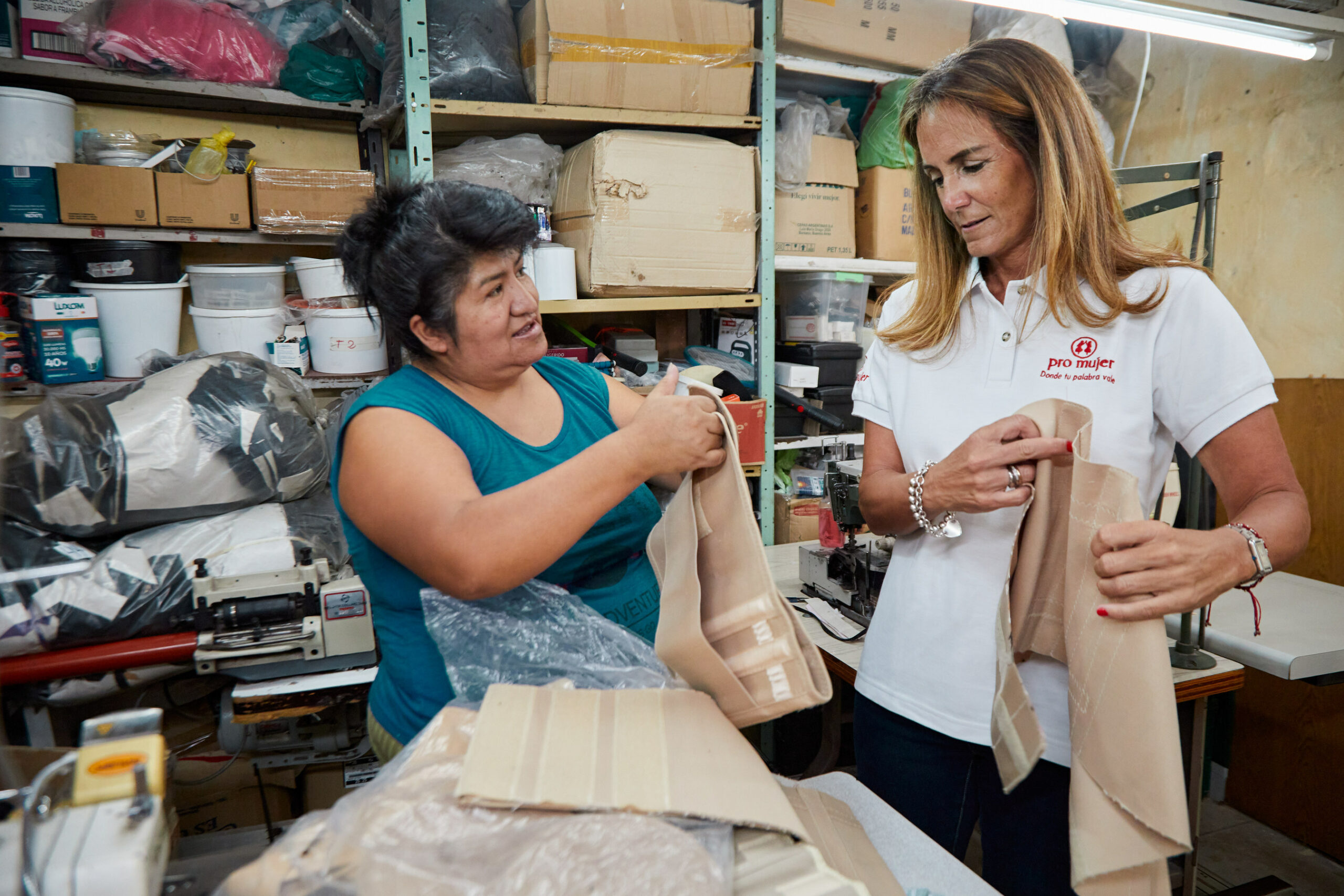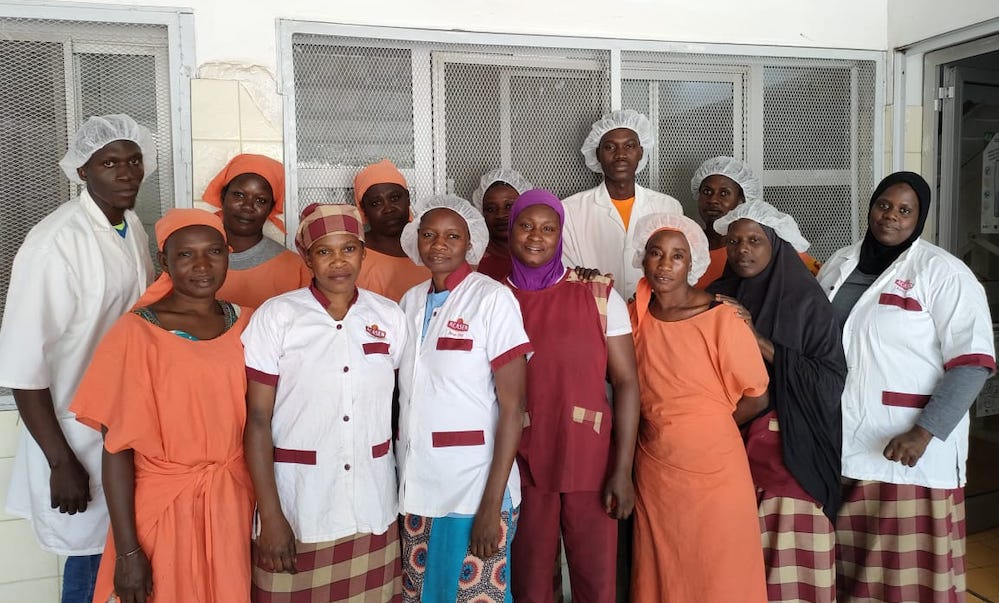ImpactAlpha, Aug. 21 – The amounts are small, but the implications could be profound. When micro lender Pro Mujer earlier this year distributed 200 million Argentine pesos, or nearly $1 million, to more than 1,400, mostly women, entrepreneurs in Argentina, it demonstrated a large new source of low-cost capital for small social enterprises.
Pro Mujer had long raised direct debt from foreign impact funds or international development banks. In contrast, the nonprofit lender’s rated “gender bond” issued on Argentina’s public bond market, attracted capital from local banking institutions, funds, and insurance companies.
The bond was the first social bond issued in Argentina focused 100% on gender, and one of the earliest in Latin America from such a non-conventional issuer. Pro Mujer is set to roll out a second gender bond to raise 500 million Argentine pesos in coming weeks.
“The issuance is something that changes not only the possibility of Pro Mujer accessing the market, but other social enterprises that now are able to access the capital markets,” Pro Mujer’s Carmen Correa tells ImpactAlpha (for context, see, “Carmen Correa, Pro Mujer: Standing by low-income women to lift Latin America”).
Alongside a lower cost of capital, says Correa, the Argentine bond markets gives the microlender regular access to debt in local currency, especially vital given the peso’s volatility.
“Adapting financial instruments to market conditions is essential for the growth of sustainable finance in emerging markets,” says Correa.
Women-owned businesses
Gender-focused bonds come in the form of green, social or sustainability bonds, which direct proceeds or issuer behavior towards a variety of social and environmental benefits.
Gender bonds go further, directing proceeds to gender equality-related projects or incentivizing behavior change, such as increasing diversity on boards.
Issuances have leapt in recent years, according to the Luxembourg Stock Exchange, which identified 169 listed gender bonds. Sovereigns, development banks and major financial institutions have dominated issuances across developed and emerging markets, including Australia, Brazil, Finland, Mexico and Morocco.
Last year, NMB Bank, a commercial Bank in Tanzania, for example, issued Africa’s first gender-focused social bond to raise capital for women-owned businesses backed by the International Finance Corp. In 2021, Junta de Andalucía, a regional government in Spain, issued a sustainability bond to support victims of gender violence.
Singapore’s Impact Investing Exchange, known as IIX, has mobilized $128 million through five “Women’s Livelihood” bonds. With the proceeds, IIX says it has impacted more than a million women and girls in Asia through loans to sustainable, women-focused small and mid-sized companies and claims “a zero-default rate” across its first four bonds.
Investor traction
Sustainability bonds in general, and gender bonds specifically, are gaining traction among investors, says Laetitia Hamon, who leads sustainable finance at the Luxembourg Stock Exchange, which partnered with UN Women to advance financing for gender equality.
As part of the collaboration, the LuxSE now uses a gender-focused bond tag to identify related debt securities.
LuxSE’s gender bond market study noted a steady acceleration of issuances over the last four years. “There’s a growing appetite from investors, in Europe in particular, to understand and measure the impact of their investments.”
In Europe, regulators have increased pressure on investors to disclose the level of sustainability and impact of their investments. Gender equality as an issue is also gaining traction and global leaders increasingly view it as key to delivering the UN Sustainable Development Goals.
Put together, Hamon says she sees from investors an “increased interest, questions and awareness about gender-focused bonds.”
Even as issuances and investor interest have risen, the study found issuer transparency and reporting to be lacking. More than half of listed gender bonds, for example, do not explicitly mention gender-related terms in their target population. Instead, document use terms like vulnerable groups or migrants and/or displaced persons.
To bring clarity to the market, the International Capital Market Association, which produces voluntary standards for debt markets, partnered with UN Women and the IFC to publish gender bond guidance.
Gender-related projects best suited for the use of bond proceeds are well-defined and require resources that can be tracked, according to ICMA, including “training efforts, sex-disaggregated loan portfolios, customized products and services, and improving infrastructure to better accommodate women.”
Track record
Gender-focused bonds can be very suitable for microfinance institutions and other social enterprises, says LuxSE’s Clément Dresche, noting MFI’s long track records in lending to women and reporting on impact. “We could increasingly see microfinance as a sector access larger amounts of capital through gender bonds.”
In July, Pakistani microfinance bank Kashf raised 2.5 billion Pakistani rupees, or about $8.5 million, through the country’s first gender-based bond. InfraZamin Pakistan, a credit enhancement facility, provided a guarantee. The bank will use proceeds from the bond, in part, to aid those impacted by last year’s flooding.
In Latin America, development banks such as the InterAmerica Development Bank and other private financial institutions have issued about a dozen gender bonds. Non-conventional issuers like Pro Mujer, a nonprofit social enterprise, have not had access to capital markets.
That changed last year, when Argentina’s market regulatory body released a simplified regime that allowed social enterprises to secure guarantees as well as third party impact assessment in order to issue social bonds.
Gender bond in Argentina
The regime paved the way for the gender bond from Pro Mujer, which has a 30-year track record in lending to women-led microbusinesses in Argentina, as well as Bolivia, Mexico, Guatemala, and Nicaragua.
After extensive due diligence, four Argentine banks, Banco Galicia, Banco Hipotecario, Banco Comafi, and Banco Supervielle, provided guarantees, which backstop investors in case Pro Mujer cannot repay the debt.
The Universidad Nacional de Tres de Febrero, which provides credit risk ratings, rated the bond a “BS2-BUENOS Social Impact Bond,” or a “good” social solution with projects that generate positive social impact for the target population.
“This first issue was made with the objective of testing the market,” says Correa. “Our goal is to be able to issue other larger bonds and finance ourselves more cheaply in the local market to be able to reach more and more women in the country.”











